AVMA members arrive home from Antarctic expedition with renewed passion
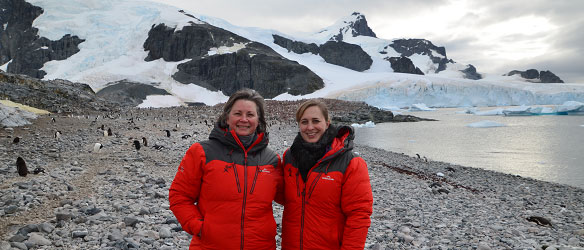
It’s not every day that veterinarians have the opportunity to explore Antarctica, but that’s exactly what Drs. Elisa Harvey and Jill Lynn did earlier this year. Along with nearly 80 other women with scientific backgrounds, Drs. Harvey and Lynn participated in an Antarctic expedition with Homeward Bound.
We’re excited to report that you can now learn all about their trip in the News section of JAVMA! We also chronicled some of Dr. Harvey and Dr. Lynn’s experiences here on our blog, and we’re happy to welcome them back.
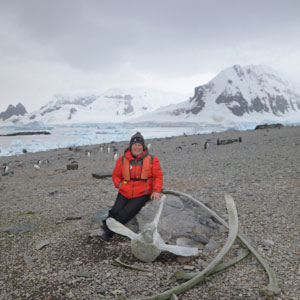 The experience of a lifetime
The experience of a lifetime
As veterinarians, of course, the local fauna made some of the most lasting impressions on the two women.
“As a veterinarian, I was fascinated by the wildlife and different animal behaviors witnessed,” said Dr. Lynn.
“We all fell in love with the penguins,” added Dr. Harvey. Although the Antarctic adventurers tried to keep a respectful distance at all times, the penguins “were so curious that they came right up to us, checking us out and pecking at our boots.”
The two veterinarians also enjoyed other wildlife experiences, such as watching orcas and seals. Dr. Lynn describes a particularly memorable sight:
“During dinner time, our entire group got up from our tables to watch a lone crabeater seal chase a lone Adélie penguin. Our hearts raced as we envisioned this penguin being eaten before our eyes. The penguin got away. Then our Antarctic biologist experts reminded us that crabeater seals do not eat penguins. The social crabeater seal was likely happy to see another living creature and wanted to be near it.”
One other highlight was visiting the Argentinian, Chinese, American and British bases to see how scientists live and work in such extreme conditions.
“It was very eye-opening,” Dr. Lynn said. “The most memorable part of the trip was unquestionably the opportunity to experience firsthand the magnificent, vast and stark landscape of Antarctica, the unique wildlife and chances to see and hear from the scientists working there. It is so unlike any other place I have ever been, really almost indescribable, like another planet!”
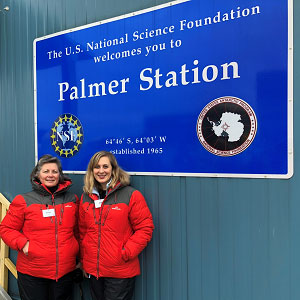 Sharing their expertise
Sharing their expertise
During the trip, all participants were allotted time to present on a topic within their areas of expertise or interest. Dr. Harvey presented on One Health, focusing on both positive and negative examples of how animal health, human health and environment health connect. Dr. Lynn shared information about the role of veterinarians in the military. Not only did she describe her own deployments (for example, a civil affairs mission in Africa, where she partnered with local animal health workers); she also explained that army veterinarians are trained in food safety and inspection, too.
“We were surrounded by 77 enthusiastic women from all over the world,” said Dr. Lynn. “I know that many of these people will be friends for life, and we will collaborate and work together in the future as we all share the common global platform of Homeward Bound.”
What now?
Now that Drs. Harvey and Lynn are back from Antarctica, they’ll be sharing their experience with others and affecting change in their own circles.
“I have been amazed at the interest in this Homeward Bound journey to Antarctica,” said Dr. Lynn. “I have been invited to present to libraries and other community organizations interested in what I experienced in Antarctica. I look forward to sharing my photos, as well as the messages of this experience—that is, people coming together for a purpose.”
“One Health can be a framework to stimulate more interdisciplinary collaboration,” said Dr. Harvey. “I am interested in reaching out to the public (especially children) to get people excited about science and One Health, and also working with the veterinary community to see how I can become more involved. I am also excited to have a global network of scientists to draw on for ideas and inspiration!”
The veterinarians also will be reflecting on their experience and applying it to their daily lives.
For example, Dr. Lynn left her clinic in the hands of her staff while she was away. Though she had confidence in her staff to take excellent care of the clients, patients and practice in her absence, she admitted that being away from her practice for more than a month did cause some anxiety.
“One of the messages of Homeward Bound is that we are stronger together,” said Dr. Lynn; she plans to apply that message to her own practice. “Sometimes, we veterinarians do too much on our own, instead of working as a team. As we look at wellbeing in our profession and high stress and suicide rates, developing a good team and support network can increase efficiency, lessen the veterinarian’s work load and have a positive impact on our emotional health. ... Developing our teams can help us achieve more work-life balance, and I’m hoping to apply some of the techniques learned through Homeward Bound in my work and personal life to help achieve my goals.”
All in all, we know these women veterinarians made an excellent addition to the Homeward Bound team, and they’ll continue to make positive changes in our profession and beyond. As Dr. Lynn puts it, she’s looking forward to “taking on new roles, perhaps to do things in veterinary medicine I never imagined I would do.”
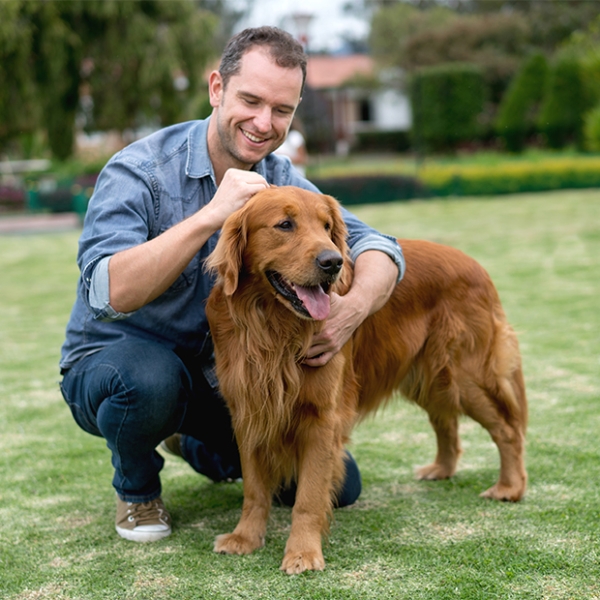

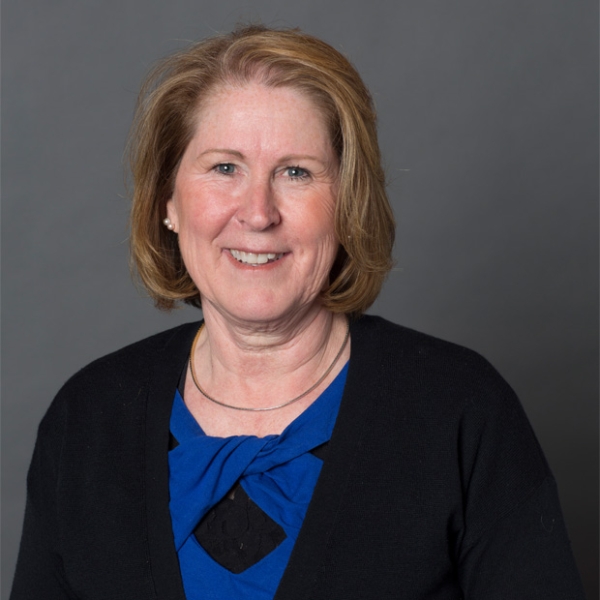
Comments
Add New Comment